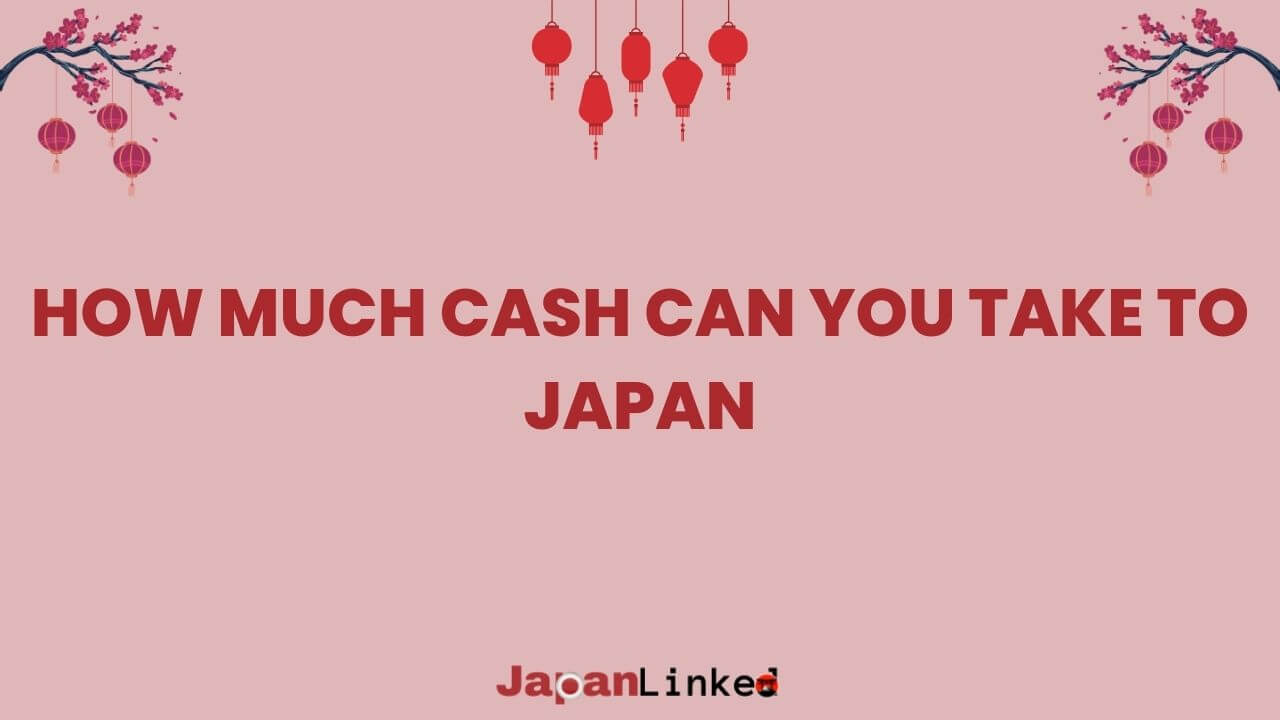When planning your trip to Japan, understanding the country’s cash declaration requirements is essential to avoid potential legal issues at customs.
Japan has specific regulations about how much cash you can bring into or take out of the country without declaring it.
Understanding Japan’s Cash Declaration Requirements
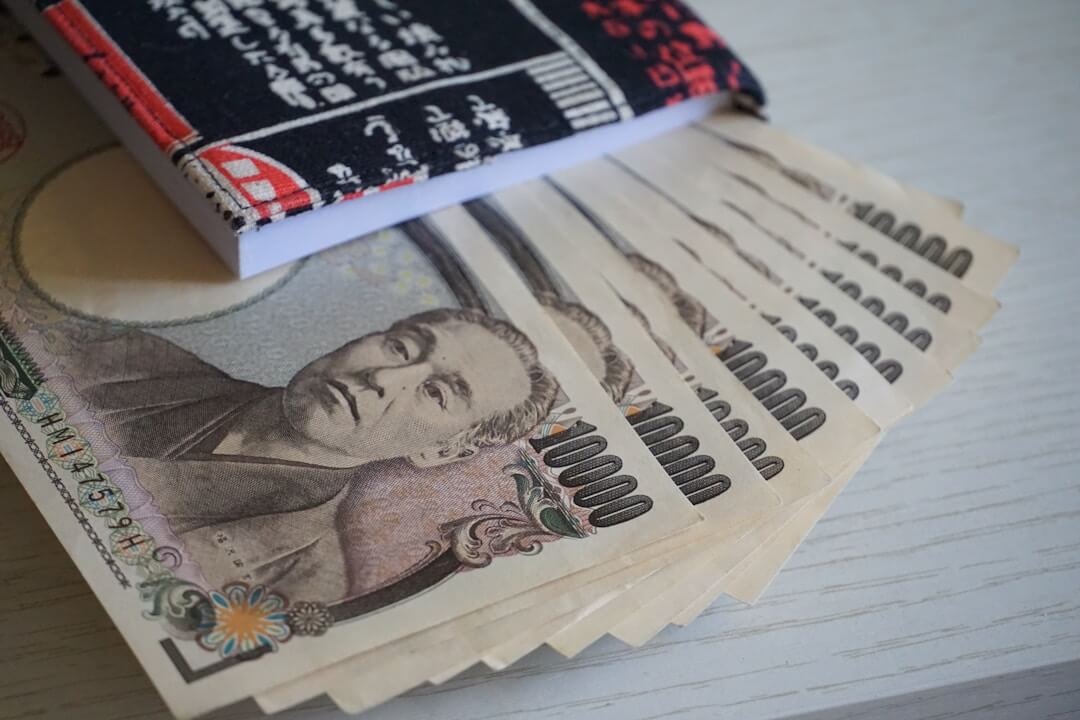
The 1 Million Yen Threshold
The most important rule to remember is the 1 million yen threshold (approximately $6,700 USD). According to Japanese customs law, if you’re carrying cash or equivalent monetary instruments valued at more than 1 million yen, you must declare it upon entry to or exit from Japan.
This threshold applies to the total value of:
- Japanese yen
- Foreign currencies
- Other monetary instruments (discussed in detail below)
It’s important to note that this is a declaration requirement, not a restriction on how much money you can bring.
No Upper Limit with Proper Declaration
There is no maximum limit on how much cash you can bring into or take out of Japan, as long as you properly declare amounts exceeding the 1 million yen threshold.
The declaration process is straightforward and designed to prevent money laundering and illegal financial activities.
When you declare your cash, customs officials may ask about the source of the funds and the purpose of carrying such amounts. Having clear, honest answers ready will help ensure a smooth process.
Special Rules for North Korea-Related Travel
Japan maintains stricter regulations for travelers coming from or going to North Korea. If you’re traveling to or from North Korea, the declaration threshold drops significantly to 100,000 yen (approximately $670 USD). This lower threshold reflects Japan’s compliance with international sanctions against North Korea.
What Qualifies as “Cash” for Customs Purposes?
Japanese customs defines “cash and monetary instruments” broadly. When calculating whether you need to declare, include the total value of:
| Type | Examples | Notes |
|---|---|---|
| Currency | Banknotes, coins | Both Japanese yen and foreign currencies |
| Checks | Personal checks, traveler’s checks, money orders | Regardless of currency |
| Securities | Stocks, bonds, promissory notes | If payable to bearer |
| Precious metals | Gold bullion | Only if over 1kg with 90% or higher purity |
Items like credit cards, debit cards, and prepaid cards loaded with funds are not counted toward the declaration threshold, as they are not considered cash equivalents for customs purposes.
Recent Updates to Regulations
In recent years, Japan has strengthened its monitoring of cash movements across its borders in alignment with international anti-money laundering standards. While the 1 million yen threshold has remained consistent, enforcement has become more stringent.
“Understanding these regulations before you travel can save you significant hassle at the airport. Many travelers are unaware of these requirements until they’re filling out arrival forms on the plane.”
The customs declaration form has been updated to make the cash declaration section more prominent, and customs officials are increasingly vigilant about enforcing these regulations. Electronic submission options have also been introduced at some major airports to streamline the process.
Remember that ignorance of these rules is not considered a valid excuse for non-compliance, and penalties can be severe. When in doubt, it’s always better to declare your cash rather than risk penalties for under-declaration.
Also Read: How Much Can You Bring To Japan? & Can You Take Food To Japan?
How to Declare Cash at Japanese Customs
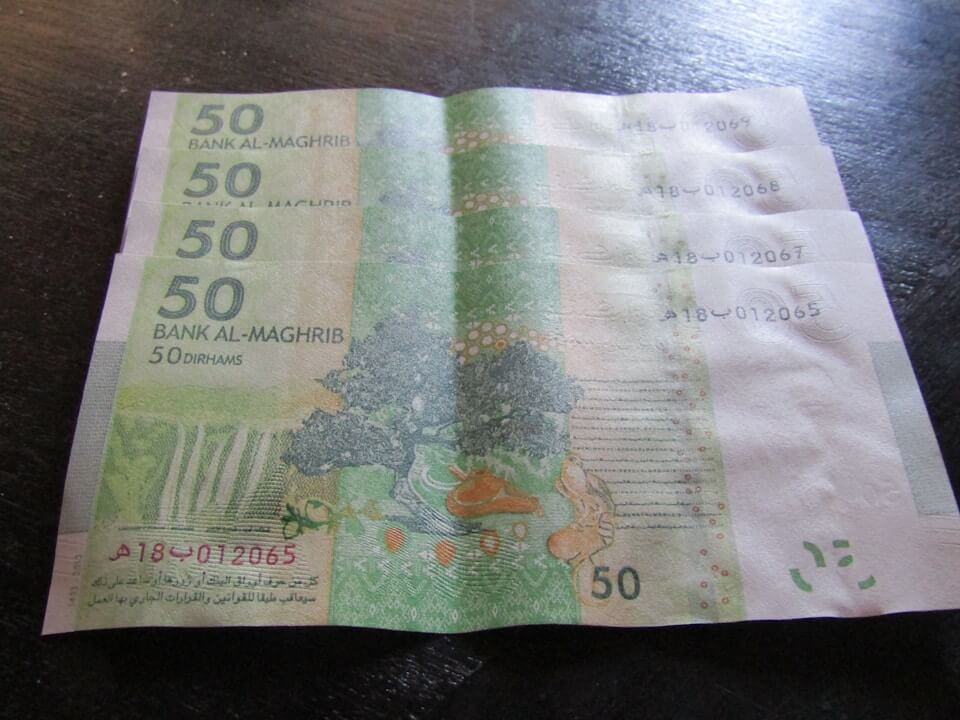
When traveling to Japan with cash exceeding 1 million yen (approximately $6,700 USD), you must formally declare it to Japanese customs authorities. The declaration process is straightforward but must be followed precisely to avoid penalties.
Step-by-Step Declaration Process
- Obtain the correct form – Before arriving in Japan, download and complete the “Declaration of Carrying of Means of Payment” form (also called “Custom Form C”) or collect it during your flight.
- Fill out the form accurately – Provide your personal information, travel details, and the exact amount of cash or monetary instruments you’re carrying. Be precise—even small errors could lead to complications.
- Convert your currency – Calculate the total value of all currencies in Japanese yen using the current exchange rate.
- Submit your declaration – Present the completed form along with your passport at the designated customs counter upon arrival.
- Verification process – Customs officers may ask to see the cash to verify the amount matches your declaration.
- Retain your documentation – Keep a copy of your stamped declaration form throughout your stay in Japan, especially if you plan to take the same amount out when leaving.
Required Forms and Documentation
The primary document required is the “Declaration of Carrying of Means of Payment” form, which requests:
- Personal information (name, nationality, passport number)
- Flight or vessel information
- Purpose of visit
- Detailed breakdown of cash and monetary instruments
- Origin and intended use of the funds
- Your signature and date
You should also prepare:
- Valid passport
- Travel itinerary
- Supporting documentation if carrying business-related funds
Declaration Locations at Major Japanese Airports
| Airport | Declaration Counter Location |
|---|---|
| Narita International Airport | Located after immigration, before baggage claim in both Terminals 1 and 2 |
| Haneda Airport | International Terminal 3F, after immigration |
| Kansai International Airport | First floor of Terminal 1, after immigration |
| Chubu Centrair International Airport | Central Japan International Terminal, after immigration |
| Fukuoka Airport | International Terminal, after immigration |
Look for signs indicating “Customs Declaration” or “Cash Declaration” in both Japanese and English.
Digital Declaration Options
Japan has recently introduced digital options for customs declarations at some major airports:
- Mobile app declaration – The “Visit Japan Web” application allows travelers to complete customs declarations digitally before arrival.
- Electronic kiosks – Available at Narita, Haneda, and Kansai airports, these self-service stations let you submit your declaration electronically.
- QR code system – After completing an online form, you’ll receive a QR code to scan at customs.
Using these digital options can significantly reduce your processing time, but be aware that even with digital submission, you may still be required to visit the customs counter if declaring cash over 1 million yen.
Important Tips for a Smooth Declaration
- Arrive early – Allow extra time for the declaration process, especially during peak travel seasons.
- Be honest and thorough – Intentional misrepresentation carries severe penalties.
- Prepare all currencies for inspection – Have your cash organized and easily accessible.
- Know the exact amount – Count your money before traveling and keep a record of the total.
- Ask for assistance if needed – Customs officers can provide guidance in English at major airports.
Remember that declaring cash is not illegal and won’t typically result in additional scrutiny if done properly. The process is designed to prevent money laundering and other financial crimes, not to inconvenience legitimate travelers.
Also Read: Can You Take Cruise To Japan? & Can You Take Boat To Japan?
Penalties for Failing to Declare Cash in Japan
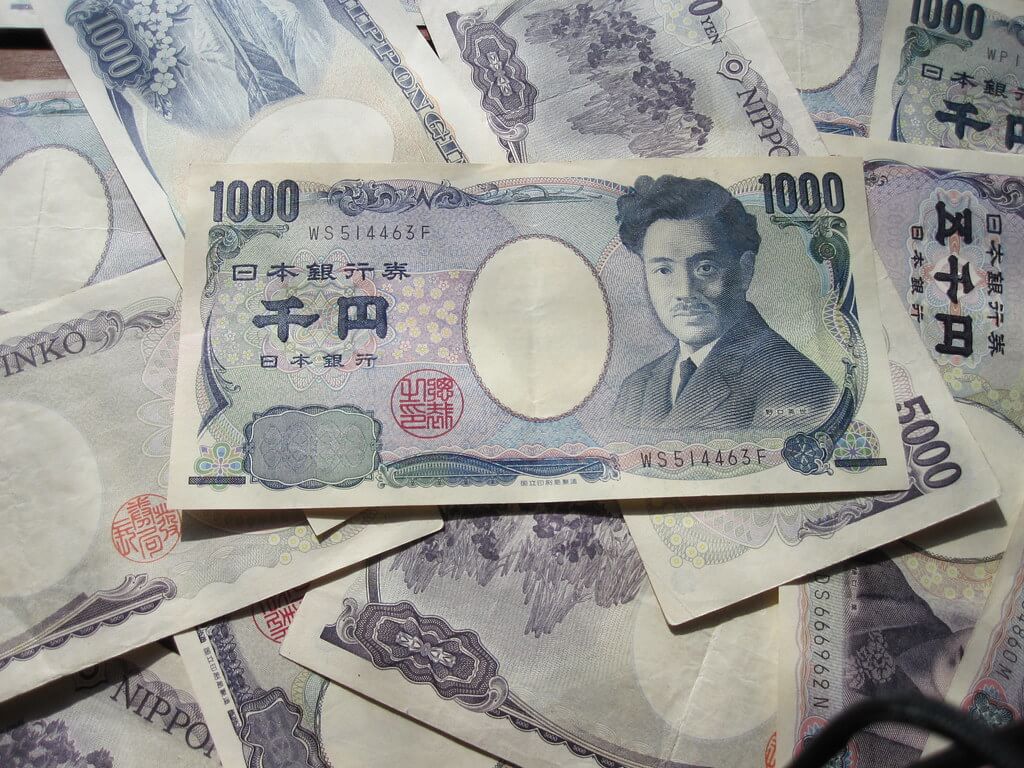
When traveling to Japan, understanding the consequences of not declaring cash over the 1 million yen threshold is critical. Japanese customs authorities take these violations seriously, and the penalties can significantly impact your travel experience and financial well-being.
Legal Consequences and Monetary Fines
Failing to declare cash exceeding 1 million yen (approximately $6,700 USD) can result in severe financial penalties. Travelers who neglect this requirement may face fines of up to 500,000 yen (about $3,350 USD).
These fines are non-negotiable and must be paid before you’re allowed to continue your journey or leave Japan.
Potential Imprisonment
Beyond monetary penalties, non-compliance with Japan’s cash declaration laws can lead to imprisonment for up to one year.
While first-time offenders with smaller amounts over the threshold might receive more lenient treatment, Japanese authorities have the legal right to detain violators, especially in cases where smuggling or money laundering is suspected.
Seizure of Undeclared Funds
Perhaps the most immediate consequence is the temporary or permanent seizure of your undeclared funds. Japanese customs officers have the authority to:
- Confiscate the entire amount of undeclared cash
- Hold the funds during an investigation
- Potentially forfeit part or all of the undeclared amount even after penalties are paid
This seizure can leave travelers without access to their money during their trip, creating significant practical difficulties.
Enhanced Scrutiny on Future Visits
Beyond the immediate penalties, travelers who violate cash declaration requirements may find themselves:
- Added to customs watch lists
- Subject to more thorough inspections on future entries
- Required to provide additional documentation when visiting Japan again
Real-World Enforcement Examples
Japanese customs authorities consistently enforce these regulations. Notable cases include:
In 2019, a business traveler from Singapore failed to declare approximately 2.5 million yen. Despite claiming ignorance of the law, they were fined 200,000 yen and had their entry process delayed by several hours.
Similarly, a group of tourists in 2022 collectively carrying 3 million yen failed to declare the amount, resulting in temporary detention at Narita Airport and a combined fine of 350,000 yen.
Enforcement Process
When customs officials discover undeclared cash, they typically:
- Separate you from other travelers for questioning
- Document the violation with photographs and statements
- Provide an interpreter if necessary
- Explain the violation and potential penalties
- Process the appropriate fine or more serious consequences
The entire process can take several hours, potentially causing missed connections or lost reservation time.
Remember that ignorance of the law is not considered a valid defense. Japanese customs authorities expect all travelers to be aware of and comply with declaration requirements, regardless of their familiarity with Japanese regulations.
Also Read: Can I Take Zyrtec To Japan? & Can I Take Tylenol To Japan?
Managing Money Safely While Traveling in Japan
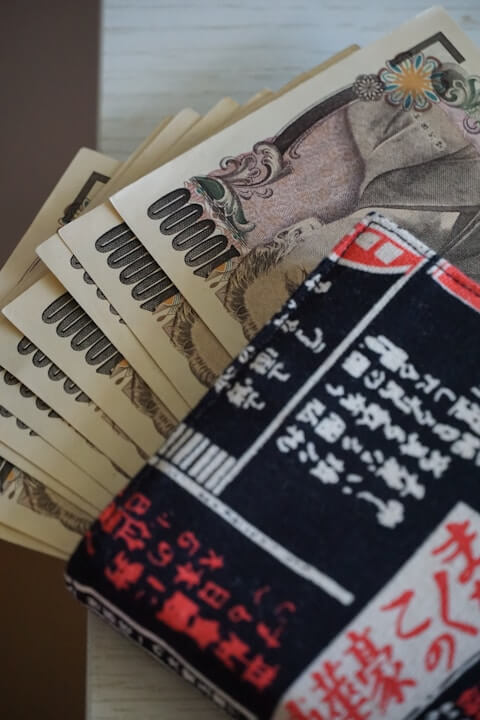
Japan is often described as one of the safest countries in the world, but that doesn’t mean travelers should be careless with their cash.
Whether you’re exploring the bustling streets of Tokyo or the serene temples of Kyoto, managing your money safely should be a priority.
Cash vs. Cards in Japan
Japan remains a predominantly cash-based society despite being technologically advanced in many other areas. While this landscape is gradually changing, particularly in major cities and tourist destinations, you’ll still encounter many situations where cash is the only accepted form of payment.
When cash is necessary:
- Small local restaurants and food stalls
- Traditional ryokans (Japanese inns)
- Souvenir shops in rural areas
- Taxi fares (though major cities increasingly accept cards)
- Vending machines (most only accept coins or ¥1000 notes)
- Cultural experiences like temples and traditional crafts workshops
When cards are accepted:
- Department stores and shopping malls
- Chain restaurants and cafes
- Hotels and larger ryokans
- Train stations (for purchasing tickets)
- Major tourist attractions
The best approach is to maintain a balance between cash and cards. Keep enough cash for daily expenses while using cards for larger purchases where possible.
This strategy minimizes both the risk of carrying excessive cash and the frustration of being caught without it when needed.
Safety Tips for Carrying Cash
While Japan has a remarkably low crime rate, it’s still wise to take precautions when carrying significant amounts of cash:
- Be discreet when handling money – Avoid counting or displaying large sums in public.
- Use smaller denominations – Break down ¥10,000 notes when possible to avoid drawing attention when making small purchases.
- Maintain situational awareness – Be particularly vigilant in crowded tourist areas like Shibuya Crossing or Sensoji Temple where pickpockets occasionally operate.
- Keep a small amount in an accessible wallet – This allows you to make quick purchases without revealing your main cash supply.
- Document your cash – Take photos of your cash receipts and keep a record of how much you’re carrying.
Money Belts and Hidden Pouches
A money belt or hidden pouch can be invaluable for securing larger sums of cash, especially when traveling between cities. These discreet accessories are worn under clothing and provide a secure place for cash, passports, and other valuables.
Popular options include:
- Traditional waist money belts – Worn like a flat fanny pack under clothing
- Neck pouches – Hang from a cord around your neck, concealed under your shirt
- Leg wallets – Strap around your calf or thigh, hidden by pants or long skirts
- Bra pouches – Small pouches that attach to bra straps or fit inside the bra
- Travel scarves with hidden pockets – Fashionable and functional
While these accessories provide excellent security, they aren’t convenient for frequent access. Use them primarily for storing reserves rather than spending money.
Utilizing Hotel Safes
Most mid-range and luxury hotels in Japan provide in-room safes, offering a secure place to store cash and valuables when you’re out exploring. Upon checking in:
- Immediately locate the safe in your room
- Set a unique code that’s memorable but not obvious
- Test the safe before storing valuables
- Keep a portion of your cash and one credit card outside the safe for daily use
If your accommodation doesn’t offer a safe, inquire about safety deposit boxes at the front desk. Many budget hotels and hostels provide this service as an alternative.
Splitting Cash Across Luggage
The strategy of “not keeping all your eggs in one basket” applies perfectly to travel funds. Consider:
- Dividing cash between travel companions if you’re not traveling alone
- Storing cash in multiple locations – some in your day bag, some in your luggage at the hotel, and some in a money belt
- Creating a small emergency fund hidden in a separate, unexpected place (like inside a toiletry container or sewn into clothing)
- Keeping at least one backup credit/debit card separate from your primary wallet
This approach ensures that even if you experience theft or loss, you won’t lose all your funds at once.
Travel Insurance Considerations
While many travelers focus on health coverage, comprehensive travel insurance that includes cash protection can be valuable for trips to Japan. When selecting a policy, look for:
- Cash coverage limits – Typically ranging from $250-$500, though premium policies may offer more
- Documentation requirements – Most insurers require proof of ownership through ATM receipts or currency exchange documentation
- Theft reporting procedures – Policies generally require a police report filed within 24 hours
Remember that insurance typically only covers a limited amount of cash, so it’s a safety net rather than complete protection. The coverage amounts are usually sufficient to get you through until you can access additional funds.
By combining these strategies—balancing cash and cards, using secure storage options, splitting funds across locations, and having insurance as a backup—you can enjoy your Japanese adventure with greater peace of mind and focus on experiencing the country’s incredible culture rather than worrying about your finances.
Alternative Payment Methods in Japan
Japan has long been known as a cash-based society, but the payment landscape is evolving rapidly. While carrying some cash is still advisable, travelers now have several convenient alternatives to consider.
ATM Availability and Accessibility
Finding ATMs that accept foreign cards in Japan has become much easier in recent years, though it’s not without challenges:
- 7-Eleven ATMs: The most reliable option for foreign travelers. These ATMs accept most international cards, operate 24/7, have English language options, and can be found at any 7-Eleven convenience store throughout Japan.
- Japan Post Bank (Yucho): Located in post offices across the country, these ATMs reliably accept foreign cards but typically operate during business hours with limited weekend availability.
- International ATM Networks: Look for ATMs displaying the Cirrus, Plus, Maestro, or Visa/Mastercard logos, which indicate compatibility with international cards.
- Airport and Tourist Area ATMs: Major airports, tourist destinations, and international hotel lobbies often have ATMs specifically designed for foreign cards.
Important: Many Japanese bank ATMs (like Mizuho, MUFG, or Sumitomo) do not accept foreign cards, so don’t count on using just any ATM you see.
Foreign Card Acceptance
Credit and debit card acceptance in Japan has improved significantly, particularly in:
- Major department stores and shopping malls
- Chain restaurants and larger establishments
- Hotels and ryokans (traditional Japanese inns)
- Train stations and tourist attractions
However, be prepared for limitations:
- Small businesses, local restaurants, and traditional markets often remain cash-only
- Some establishments may have minimum purchase requirements for card payments
- Foreign cards might be declined even where cards are accepted (always have a backup)
Digital Payment Options
Japan has embraced several digital payment solutions that travelers can utilize:
| Payment Method | Accessibility for Tourists | Where It’s Accepted | Setup Difficulty |
|---|---|---|---|
| IC Cards (Suica/PASMO) | High | Public transport, convenience stores, vending machines | Easy |
| QR Code Payments | Medium | Retail stores, restaurants, some taxis | Medium |
| Apple Pay/Google Pay | Medium | Major retailers, some restaurants | Easy (if your cards work) |
Prepaid Travel Cards
Prepaid travel cards offer a secure alternative to cash:
- IC Transport Cards (Suica/PASMO/ICOCA): Beyond transit, these can be used for small purchases at convenience stores, vending machines, and some restaurants. They can be topped up at train stations and convenience stores.
- International Travel Money Cards: Services like Wise, Revolut, or traditional bank travel cards can be loaded with Japanese yen before your trip, offering competitive exchange rates and reduced fees compared to regular credit cards.
Mobile Payment Apps in Japan
Japan has developed several mobile payment platforms, though some require Japanese bank accounts or phone numbers:
- PayPay: Japan’s leading QR code payment app, accepted at many retailers and restaurants
- LINE Pay: Connected to the popular messaging app LINE
- Rakuten Pay: Linked to the Rakuten ecosystem
- d Payment: Operated by mobile carrier NTT DoCoMo
For short-term visitors, Suica/PASMO mobile integration with Apple Pay or Google Pay is often the most accessible mobile payment option, allowing you to add these transit cards to your smartphone wallet.
Pro Tip: Before relying on any digital payment method, ensure your phone has sufficient battery life and consider carrying a portable charger. Japan’s extensive transit system and full days of sightseeing can quickly drain your device.
While these alternatives provide convenience, keeping a modest amount of cash (¥10,000-¥30,000) on hand remains advisable for smaller establishments, rural areas, and emergency situations.
Currency Exchange Options and Best Practices in Japan
When planning your trip to Japan, understanding currency exchange options can save you significant money and hassle. Japan uses the yen (¥), and getting the best exchange rate should be a priority for any traveler.
Exchange Rates Comparison
Exchange rates can vary dramatically depending on where and when you convert your money. As a general rule, exchange rates at airports and hotels are typically 3-5% worse than what you’ll find at dedicated currency exchange offices in city centers.
Before your trip, it’s worth monitoring currency fluctuations using apps like XE Currency or OANDA to understand what constitutes a fair rate.
Pro Tip: The mid-market rate (what you see on Google or financial news sites) is the “true” exchange rate. Any service will offer you less than this rate – your goal is to find the option closest to it.
Airport vs. City Exchanges
While exchanging money immediately upon arrival might seem convenient, airport currency exchanges often offer the poorest rates in the country.
If possible, bring just enough yen for initial transportation and expenses (around ¥10,000-¥20,000), then exchange the bulk of your cash in the city.
| Location | Pros | Cons |
|---|---|---|
| Airport Exchanges | Convenience, extended hours | Poor exchange rates, higher fees |
| City Center Exchanges | Better rates, lower/no fees | May have limited operating hours |
| Banks | Security, reliability | Often have shorter hours, can be slower |
Commission Fees to Watch For
When exchanging currency, pay attention to both the exchange rate and any additional fees:
- Flat fees – Some exchanges charge a set amount regardless of how much you’re converting
- Percentage fees – A percentage of the total amount exchanged
- Zero commission – While advertised as “no fee,” these services typically build their profit into less favorable exchange rates
Always ask for a breakdown of the total cost before completing any exchange. Some places advertise “no commission” but compensate with significantly worse exchange rates.
Best Places to Exchange Money in Japan
For the most favorable rates in Japan, consider these options:
- Discount ticket shops (kakuyasu kippu-ya) – Often found near major train stations, these shops frequently offer competitive exchange rates as a side business
- Large department stores – Stores like Bic Camera and some locations of Takashimaya offer decent exchange services
- Certain post offices – Major post offices in tourist areas sometimes provide good exchange rates
- Online services with pickup options – Services that allow you to book a rate online and pick up yen upon arrival can offer better rates than on-the-spot exchanges
Shinjuku, Shibuya, and Akihabara in Tokyo are known for having competitive currency exchange options, with multiple vendors competing for business.
Avoiding Scams and Maximizing Value
To protect yourself when exchanging currency in Japan:
- Always count your money before leaving the counter
- Get a receipt for every transaction
- Avoid street exchangers or unauthorized services
- Compare rates between multiple providers before committing
- Exchange larger amounts at once to minimize the impact of flat fees
- Consider withdrawing yen directly from ATMs as an alternative to currency exchange
Important: Most legitimate currency exchanges in Japan display their rates prominently. If rates aren’t clearly posted or the exchanger seems reluctant to provide specifics, consider it a red flag.
By taking time to find the best currency exchange options, you can save a significant amount on your travel budget – sometimes up to 10% compared to the least favorable options.
This extra money can be better spent enjoying authentic Japanese experiences rather than paying unnecessary fees.
Budgeting for Your Trip to Japan
Planning your finances for a Japan trip requires understanding the country’s unique spending landscape. While Japan offers experiences at various price points, having a clear budget will ensure you enjoy your trip without financial stress.
Average Daily Expenses
Your daily budget in Japan can vary significantly based on your travel style:
| Travel Style | Daily Budget (Per Person) | What It Covers |
|---|---|---|
| Budget | ¥8,000-¥12,000 ($55-$80) | Hostel accommodation, convenience store meals, public transportation, free or low-cost attractions |
| Moderate | ¥15,000-¥25,000 ($100-$170) | Business hotels or mid-range accommodations, casual restaurant meals, public transportation, paid attractions |
| Luxury | ¥30,000+ ($200+) | High-end hotels, fine dining, taxis, exclusive experiences |
Food costs typically range from ¥500-¥1,000 for a convenience store meal to ¥1,500-¥3,000 for casual restaurants and ¥10,000+ for high-end dining experiences.
Transportation costs include ¥2,500 for a daily subway pass in Tokyo or between ¥13,000-¥38,000 for a 7-day Japan Rail Pass, depending on the class and coverage area.
Tipping Culture in Japan
One budget-friendly aspect of Japan is its no-tipping culture. Unlike many Western countries, tipping is not expected or practiced in Japan for:
- Restaurant service
- Taxi drivers
- Hotel staff
- Tour guides
In fact, leaving a tip can sometimes cause confusion or even be perceived as rude. The excellence of service is considered part of the price you pay, which makes budgeting more straightforward since you won’t need to calculate additional service charges.
Cash-Only Establishments
Despite Japan’s technological advancement, many businesses remain cash-only, particularly:
- Small family-run restaurants
- Traditional ryokans (Japanese inns)
- Local shops in rural areas
- Some temples and shrines with entrance fees
- Traditional markets and street food vendors
Even in Tokyo, you might be surprised by how many establishments don’t accept cards. It’s advisable to carry at least ¥5,000-¥10,000 in cash each day to avoid being caught without payment options.
Emergency Fund Recommendations
When traveling in Japan, it’s wise to maintain an emergency cash reserve separate from your daily spending money:
- For a week-long trip: Keep around ¥30,000 ($200) in emergency cash
- For longer stays: Consider ¥50,000-¥100,000 ($350-$700)
Store this emergency fund securely, perhaps split between your hotel safe and a hidden money belt. This cash can be crucial if you encounter:
- Medical emergencies requiring upfront payment
- ATM network outages (which sometimes occur with international cards)
- Lost or stolen credit cards
- Unexpected transportation needs during off-hours
Cost Differences by Region
Japan’s costs vary significantly depending on where you visit:
Tokyo and Osaka are generally the most expensive cities, with higher accommodation costs and pricier dining options. Expect to spend about 20-30% more in these metropolitan areas compared to other regions.
Kyoto can be expensive during peak tourist seasons (cherry blossom and autumn foliage), when accommodation prices often double.
Rural areas and smaller cities like Kanazawa, Takayama, or regions such as Tohoku offer better value, with lower accommodation costs and more affordable dining options.
Okinawa has its own pricing structure, with costs similar to Tokyo during Japanese holiday seasons but potentially better deals during off-peak times.
When budgeting, consider allocating more funds for metropolitan stays and planning longer stays in more affordable regions to balance your overall expenses. This strategy allows you to experience Japan’s diversity while maintaining control over your travel budget.
Frequently Asked Questions About Cash in Japan
Do I need to declare all currencies or just Japanese yen?
You must declare all currencies combined if their total value exceeds 1 million yen. This includes foreign currencies (USD, EUR, etc.), Japanese yen, and other monetary instruments like traveler’s checks and securities. Customs officials are concerned with the total value, not just the currency type.
What happens if I forget to declare cash over 1 million yen?
Forgetting to declare is not considered a valid excuse by Japanese customs. If caught with undeclared cash exceeding the threshold, you may face penalties including seizure of funds, fines up to 500,000 yen, or imprisonment up to one year. It’s always better to declare when in doubt.
Can I use US dollars or euros in Japan instead of converting to yen?
While some major tourist locations and high-end hotels might accept US dollars or euros, the vast majority of establishments in Japan only accept yen. You’ll have a much smoother experience if you convert your money to local currency, as most restaurants, shops, and transportation services operate exclusively with yen.
Where is the best place to exchange currency in Japan?
The most favorable exchange rates are typically found at:
- Airport exchange counters (surprisingly competitive in Japan)
- Major banks in city centers
- Post offices with international service counters
- Authorized currency exchange shops in tourist areas like Shinjuku and Shibuya
Avoid exchanging money at hotels, as they often offer less favorable rates.
What should I do if my cash is lost or stolen in Japan?
If your cash is lost or stolen:
- File a police report immediately at the nearest koban (police box)
- Contact your country’s embassy or consulate in Japan
- If the cash was declared upon entry, notify customs about the situation
- Keep a copy of the police report for insurance claims
Japan has a remarkably high rate of lost items being returned, so there’s a chance your cash might be recovered if lost.
Do I need to keep my cash declaration form throughout my stay?
Yes, retain your declaration form until you leave Japan. You may need to present it when:
- Making large purchases that might require proof of funds
- Exchanging significant amounts of currency
- Departing Japan with large sums of cash
- Dealing with any customs-related inquiries during your stay
Is there a limit to how much cash I can take out of Japan?
The same 1 million yen threshold applies when leaving Japan. If you’re departing with cash exceeding this amount, you must complete a declaration form, even if the money was legally obtained in Japan through ATM withdrawals or currency exchange.
How do currency exchange rate fluctuations affect my declaration requirements?
Currency values fluctuate daily, which can affect whether your cash exceeds the declaration threshold. Japanese customs uses the exchange rate on the day of entry/exit to determine if your cash exceeds 1 million yen. Check current rates before travel and declare if you’re close to the threshold to avoid complications.
Can I bring collectible coins or gold to Japan without declaring them?
Collectible coins with numismatic value beyond their face value and gold (over 1kg with 90% purity) are considered “means of payment” under Japanese customs laws. Their value must be included in your total when determining if you exceed the declaration threshold. Antique coins and jewelry for personal use are generally exempt but may require separate declaration as valuable items.
How strict are Japanese customs officials about checking for cash?
Japanese customs officials are known for their efficiency and thoroughness. They regularly use X-ray machines and may conduct random physical inspections. While not every traveler is thoroughly checked, the penalties for non-compliance are severe enough that it’s never worth risking non-declaration when required.

